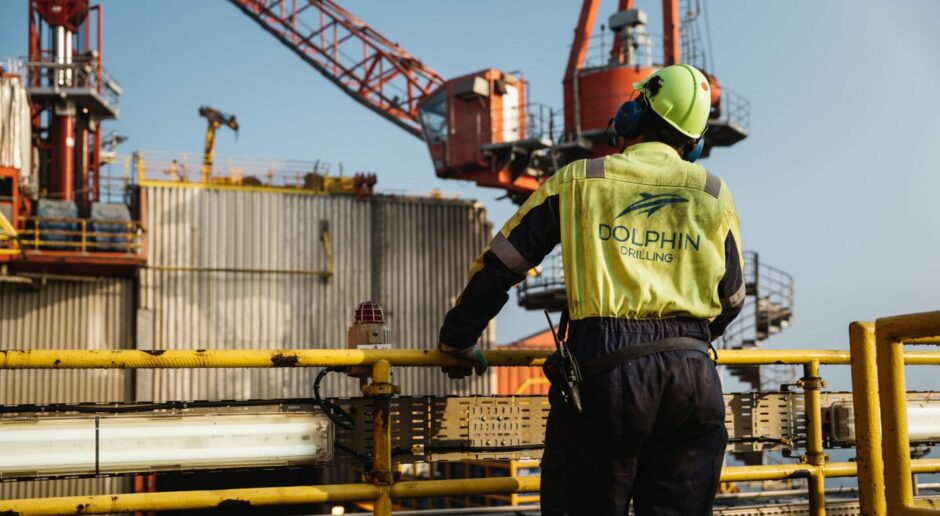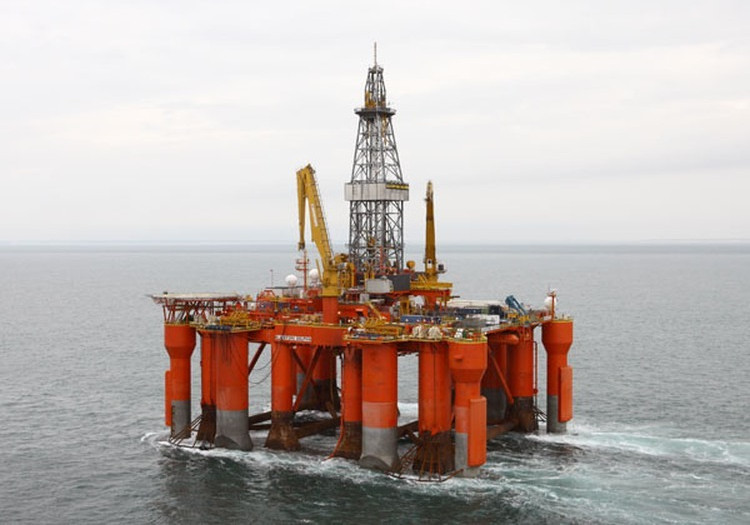
An Aberdeen-headquartered offshore drilling firm has vowed to take its legal battle with HMRC to the UK’s Supreme Court.
Dolphin Drilling was left distraught in December when it lost a Court of Appeal case against the taxman, despite winning two previous rulings, leaving it liable for nearly £13m in payments.
It has now mounted its appeal to take it to the highest court in the land.
Chief financial officer Stephen Cox described the case as “a knife in the back” from the UK Government at a time when the sector is already hit by major uncertainty through policies like the windfall tax.
Stewarts, a third-party London law firm, said the Court of Appeal ruling has “far-reaching implications” not just for the UK oil and gas sector – particularly rigs and vessels – but in anti-avoidance tax cases across the country.
A senior associate said this case “would obviously benefit from a review by the highest court”.
What’s it all about? ‘Incidental’ services and accommodation
The long-running court battle stems from a tax deduction claim by Dolphin in 2014 and 2015 after its (now decommissioned) Borgsten Dolphin rig was on hire with TotalEnergies on its North Sea Dunbar asset.
Under 2010 corporation tax law, profits from “relevant assets” for oil and gas activities have been ring-fenced, provided they are movable or “can be used” to drill for oil or provide accommodation for offshore workers.
However, if the accommodation of workers – as took place with the Borgsten Dolphin – is deemed to be more than “incidental” to the contract, than an exemption to that rule applies.
HMRC argued successfully that the accommodation on Borgsten Dolphin was more than incidental to the work, while Dolphin’s Stephen Cox argues the opposite, saying “you have to dig to page 200 or something before you find any reference to ‘we need accommodation’”.
This ruling sets a new precedent with wide implications on what tax can and cannot be claimed under the legislation.
Anastasia Nourescu, senior associate at Stewarts, explains: “The Court of Appeal has held that an exception to these rules, which would be beneficial to oil contractors, does not apply to tender support vessels that provide crucial services to minimum facility drilling platforms (MFPs).
“The findings will be relevant to offshore oil operators that use MFPs as low-cost alternatives to conventional drilling platforms and may wish to benefit from the exception.
“The decision will also be of wider interest as it grapples with the meaning of an ‘incidental’ use or purpose. This wording comes up in various contexts in the UK tax code, particularly in anti-avoidance provisions. There is little precedent on this point, so the guidance in this case may have a far-reaching impact.”
Will it get to the Supreme Court?
Permission applications to the Supreme Court on tax cases are “notoriously unpredictable”, says Ms Nourescu, “but this is a case which has important and wide implications for the industry, won at the first two stages, and engages a point of law which would obviously benefit from a review by the highest court”.
If permission is granted, it would likely be heard in 2025 on current lead times.
“It’s not a Flotel”
Dolphin Drilling’s Stephen Cox said: “The net effect is a potential broadening of the tax net, and it could capture others assets, other firms into this and definitely broadens the remit HMRC has, which is a big negative for the industry, in my view.
“Obviously we’re going to take a position with Dolphin Drilling that we completely disagree with this, but we are aware other people are looking at this case with great interest in terms of what potential impact that has across the industry.
“It’s another layer of uncertainty for for people operating offshore.”
The Borgsten was engaged by TotalEnergies and converted into a “tender support vessel” which included increasing its accommodation from 102 to 120, and was used to accommodate workers on board the Dunbar as part of its contract.
However the primary use for the rig was drilling services, with accommodation being “incidental”, as Dolphin successfully argued in the first two tiers of the Tax Tribunal.
Mr Cox was “extremely disappointed” by the Court of Appeal ruling that accommodation was a core part of the contract.
“It’s not a flotel, that’s the fundamental difference, and it’s not flotel for lots of different reasons, but one clear reason is if you wanted a flotel you would go and hire a flotel as it doesn’t cost as much as this unit costs.”
‘Huge industry implications’
He added: “What it has done – and why we also feel we have a strong case to take it to the Supreme Court – is it has broadened the tax net significantly in terms of this ring-fenced additional tax, which now appears to be applicable potentially to anything that arguably has accommodation within UK territorial waters.
“So something that was originally designed in our view target drilling rigs and accommodation units all of a sudden seems to become applicable to many, many more assets. And that obviously has huge industry implications.”
‘Knife in the back’ to Dolphin Drilling momentum plans
Dolphin Drilling, which underwent a restructuring in 2019 and has been faced with litigation in Nigeria, has been successful of late in winning contracts.
It is currently planning to have three rigs running by 2025 and is near completion of a deal to buy two vessels from Transocean.
“So this, this hitting us at this time, you know this, it’s a sort of knife in the back-type thing,” says Cox.
The UK is the firm’s home market, despite being viewed “as one of the least stable fiscal environments in the world right now, and I’m talking even against Africa at this point,” he says, discussing market uncertainty and vessels leaving the sector, in part due to the windfall tax.
“The UK Government, as I can point to it, introducing something else through this case, has added more uncertainty into the basin. They just keep doing it.”
Recommended for you


 © Supplied by Stewarts
© Supplied by Stewarts © Supplied by Dolphin Drilling/ St
© Supplied by Dolphin Drilling/ St